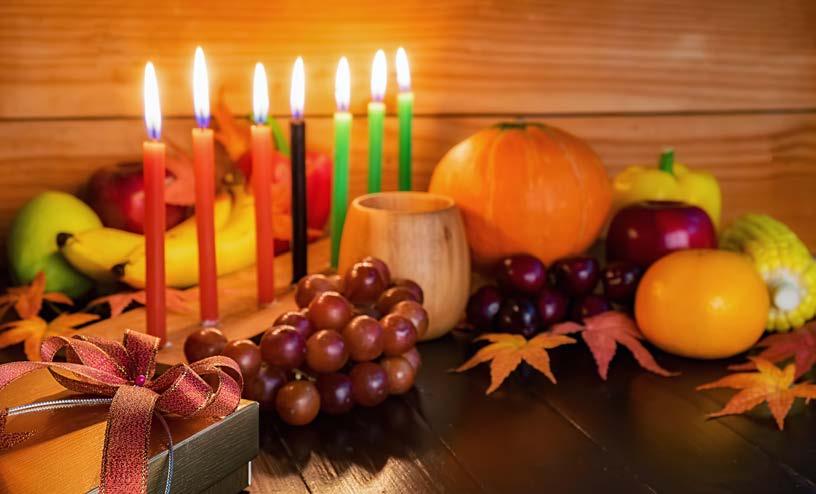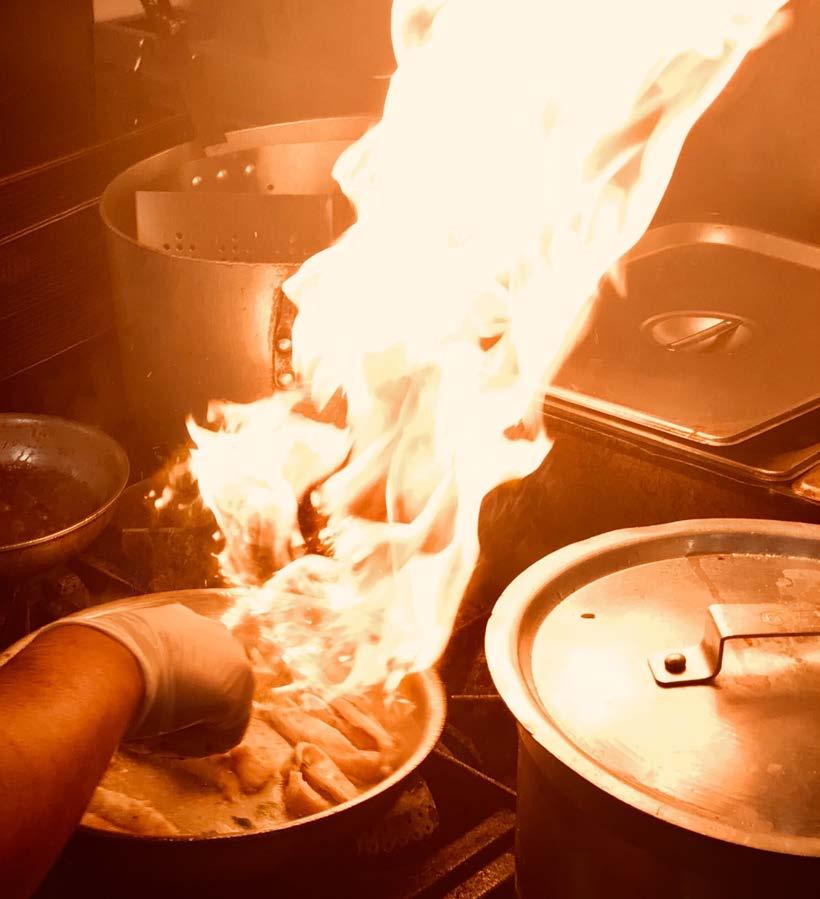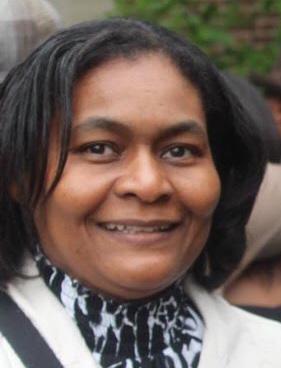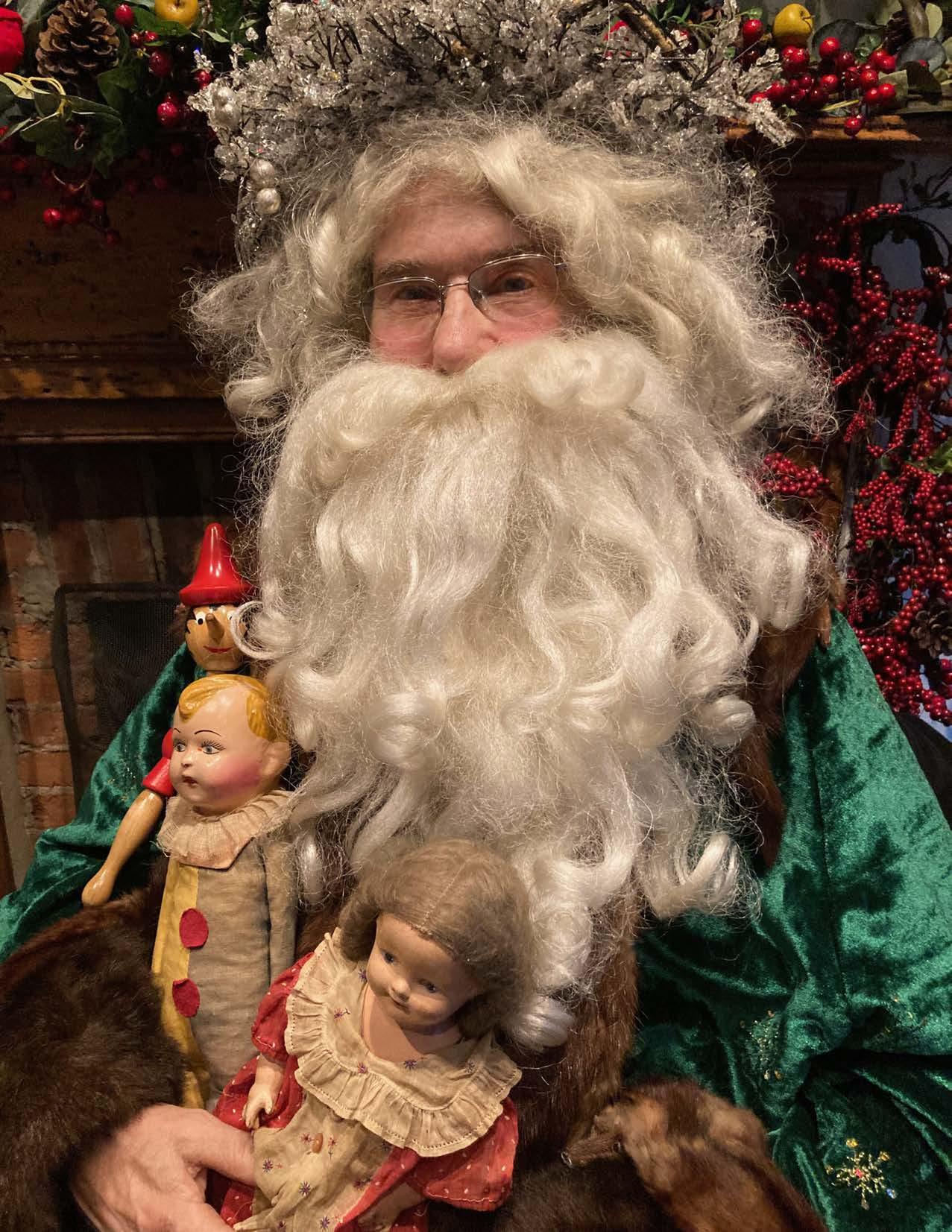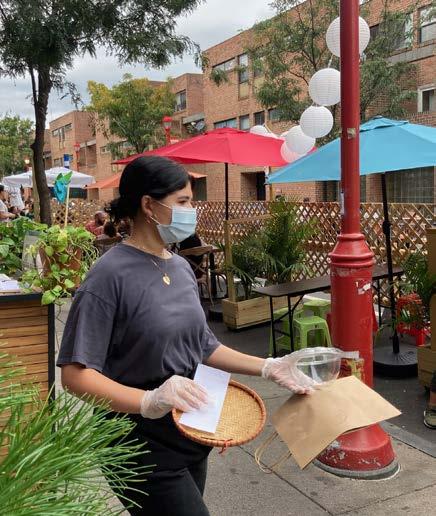
3 minute read
Feature
A Season of Light
Holiday traditions from around the world brighten up the coldest and darkest time of the year.
By Suzanne Dreitlein
Under normal circumstances, many different emotions can get packed into the winter holiday season. Perhaps it is a time of joy and fellowship, or it may be a time of quiet reflection and remembrance, or for some, it can be an emotionally challenging time.
This year, things are not normal. We have been asked to adapt to new standards of safety and refrain from some of our usual gatherings and traditions. But this new normal has also presented us the opportunity to pause and ask ourselves, “Are holiday traditions intentional or a little autopilot? Are there new aspects to contemplate or traditions to adopt?”
There is a lot of talk about what makes us different; what divides us. However, a surprising number of holiday traditions from various origins share a common theme: the transition from darkness to light. Candles, evergreens, contemplation, and singing are also seasonal practices from ancient times that have been incorporated into most modern religions and are activities that can be enjoyed alone or with small family groups. Following are some of the traditions we are adapting for this holiday season.
The Hindu celebration of Diwali (11/14) started off the season with a fiveday festival of light. To prepare for Diwali, celebrants give their homes a thorough cleaning—a good start to the season even for non-Hindus!
Although large indoor gatherings for Thanksgiving were off the table for many this year, virtual gatherings meant everyone could fit in a Philly row housesized dining room. And that time spent in traffic could be devoted to exchanging family stories. A bonus of our new virtual life meant we could use online scheduling to visit with everyone this year instead of having to choose one side over another.
We often think of the holiday season as a time to be rushing around on the go, but this year there are simply fewer things to do. For Christians, the time before Christmas, called Advent (11/29-12/24), is a time of reflection and prayer. The previous “rushing around” time can transform into a season of contemplation.
On St. Nicholas’ Day (12/6), German children—at least those who haven’t been abducted by Krampus—left their
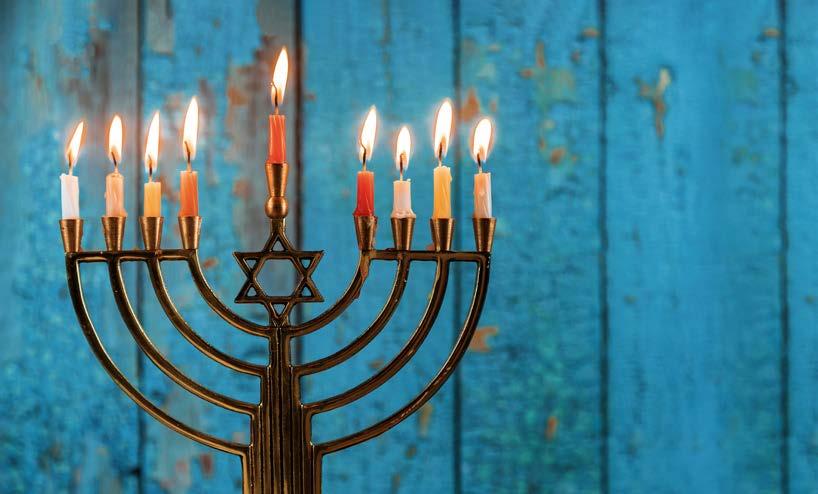
Shop Local
Most holiday traditions include gift-giving. And, even in the pandemic, many of our local small businesses are open while, of course, practicing distancing and maskwearing. This year, step away from the computer and step out to one of the neighborhood shops.
shoes by the door for St. Nicholas (a.k.a. parents) to stuff them with the lebkuchen, the classic German spice cookie. (Even now that the day has passed, you can find authentic lebkuchen at the South Philly Aldi.)
Hanukkah (12/10-12/18), the Jewish festival of lights, extends over eight days. You don’t have to be Jewish to enjoy latkes (potato pancakes) and chocolate coins.
Every year, Gloria Dei (Old Swedes’) celebrates its Swedish Lutheran roots with an annual St. Lucia Day (12/13), when girls wearing white robes and candle crowns process through the neighborhood.
The Saturnalian Fancy Brigade (Mummers) gets their name from the celebration of Saturnalia (12/17–23), an ancient Roman winter solstice festival celebrated with a sacrifice, a banquet, gift-giving, and a carnival. Make a “sacrifice” of something you’ve been holding on to for too long or a bad habit you need to let go of.
Another solstice holiday is Shabe Yaldā (12/21), an Iranian festival celebrating the victory of light over darkness. Celebrants stay up all night to observe the Persian Yaldā tradition known as Shab Chera, meaning “night gazing.”
For Christmas (12/25), you should still be able to decorate a tree, attend services virtually, bake cookies, and even exchange gifts—all while adhering to guidelines. Just remember to wear a mask, keep distance, and gather outside in limited numbers. Traditionally, there are activities during the 12 days between December 25 and January 6 so not everything needs to be packed into one day. Please do not send partridges, turtle doves, hens, swans, or other aves to your neighbors.
Finally, Kwanzaa (12/26-1/1) is the African-American celebration of family, community, purpose, creativity, faith, and culture. Heading into the new year is the perfect time to reflect on these tenets, find ways to give back to the community, and help each other in the new year. ■
Raise Your Voice
The holidays are a time for song! So try a holiday carol karaoke over Zoom—a new twist that may prove especially amusing. Studies say singing lifts the spirits even if it’s done poorly, so carry on—even if you can’t carry a tune.
